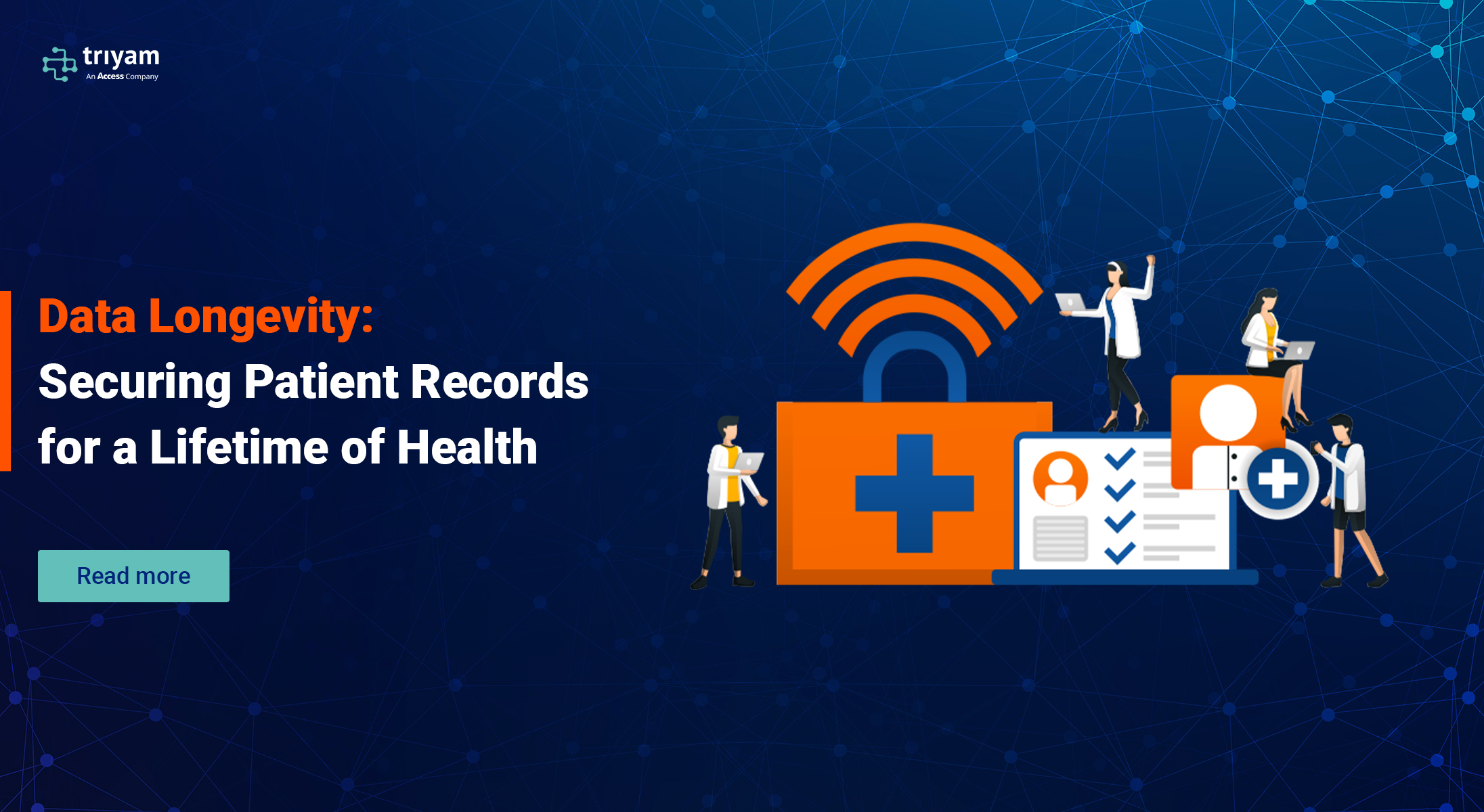In an age where data drives healthcare decisions, ensuring the longevity of patient records is no longer optional—it’s a necessity. Healthcare professionals are increasingly relying on electronic health records (EHRs) and advanced data archiving solutions to provide continuity of care, meet regulatory requirements, and enhance patient outcomes. But why is data longevity so critical, and how can healthcare providers secure patient records for a lifetime of health? Let’s explore the answers.
The Importance of Data Longevity in Healthcare
Healthcare data longevity signifies the capacity to maintain and access patient records over long durations, often extending across decades. This is especially vital due to the persistent nature of numerous health conditions and the requirement for long-term data to provide effective treatment. As highlighted in a study published in the Journal of the American Medical Informatics Association, patients who have access to a comprehensive longitudinal record of their medical history encounter 24% % fewer hospital readmissions compared to those without such access.
Challenges in Securing Long-Term Patient Data
Despite its importance, ensuring data longevity comes with challenges:
- Regulatory Obligations: Regulations such as HIPAA in the United States require healthcare providers to keep patient records for a minimum duration (6 years in most instances), while certain states and nations mandate retention for up to 25 years or even indefinitely.
- Technological Obsolescence: As technology advances, older formats and platforms can become obsolete. A report from HIMSS indicated that 64% of healthcare organizations struggle with transferring legacy data to contemporary systems.
- Data Security: The frequency of cyberattacks targeting healthcare entities is increasing. The 2023 Healthcare Cybersecurity Report highlighted that healthcare is the most attacked sector, accounting for 44% of global ransomware incidents.
- Storage Costs: Keeping extensive amounts of data over many years can impose significant financial challenges. A survey conducted by Health IT Analytics revealed that 78% of healthcare organizations find it difficult to balance data storage expenses with accessibility requirements.
Learn more about Protecting Patient Privacy in Healthcare.
Best Practices for Promoting Data Longevity
- Invest in Robust Data Archiving Solutions: Contemporary archiving systems are crafted to securely store data while enabling straightforward retrieval. These solutions typically feature automated data migration, compliance monitoring, and sophisticated encryption.
- Embrace Interoperable Systems: Selecting systems that comply with international standards like HL7 and FHIR promotes smooth data exchange and minimizes the risk of becoming outdated.
- Conduct Regular Data Audits: Frequent audits assist in detecting deficiencies in data retention and ensuring adherence to regulatory requirements.
- Enforce Strong Cybersecurity Protocols: Encryption, multi-factor authentication, and real-time threat monitoring are crucial for safeguarding patient records against breaches.
- Educate Healthcare Personnel: An informed workforce acts as the first line of defense against data mishandling. Consistent training sessions on data security and compliance can greatly mitigate risks.
The Role of Archiving in Long-Term Health Management
Data archiving is not just about storage; it’s about preserving the context and utility of data. Archived data can:
- Assist in Managing Chronic Conditions: With approximately 60% of adults in the U.S. experiencing at least one chronic illness (CDC, 2024), having access to past data is crucial for monitoring the development of diseases and the effectiveness of treatments.
- Foster Research and Advancement: Long-term data is a treasure trove for medical research. For example, the Framingham Heart Study, one of the most enduring cardiovascular studies, has significantly influenced our global comprehension of heart disease risk factors.
- Strengthen Legal and Ethical Adherence: Well-organized archived data guarantees that healthcare providers can address legal requests or audits with minimal interruptions.
Read more about 10 Reasons Why Your Healthcare Organization Should Select a Cloud-Based Archival Solution.
Statistical Snapshot: The Impact of Effective Data Management
- Time Savings: Effective data archiving can reduce retrieval times by up to 75% (source: Health IT Analytics).
- Cost Efficiency: Healthcare organizations using advanced archiving solutions report a 23% reduction in operational costs associated with data management (source: HIMSS).
- Improved Patient Outcomes: Access to complete medical histories improves diagnostic accuracy by 37% (source: Journal of Medical Systems).
Conclusion
For healthcare professionals, securing patient records for a lifetime is about more than compliance—it’s about fostering trust, improving care, and advancing medical knowledge. By investing in robust data archiving solutions, embracing interoperability, and prioritizing cybersecurity, healthcare providers can ensure that patient records remain accessible, secure, and meaningful for decades to come.
In a world where data continuity can mean the difference between life and death, ensuring data longevity is not just an operational task—it’s a moral imperative.
Partner with Triyam for Your Data Archiving Needs
When it comes to securing patient records for the long haul, Triyam is the trusted partner healthcare professionals rely on. With cutting-edge archiving solutions tailored to meet your regulatory and operational needs, Triyam simplifies data migration, ensures seamless compliance, and safeguards your records with advanced security measures. Join the growing network of healthcare providers who have chosen Triyam to future-proof their data and deliver unparalleled care.
Contact Triyam today to learn how we can help secure your patient records for a lifetime of health.

